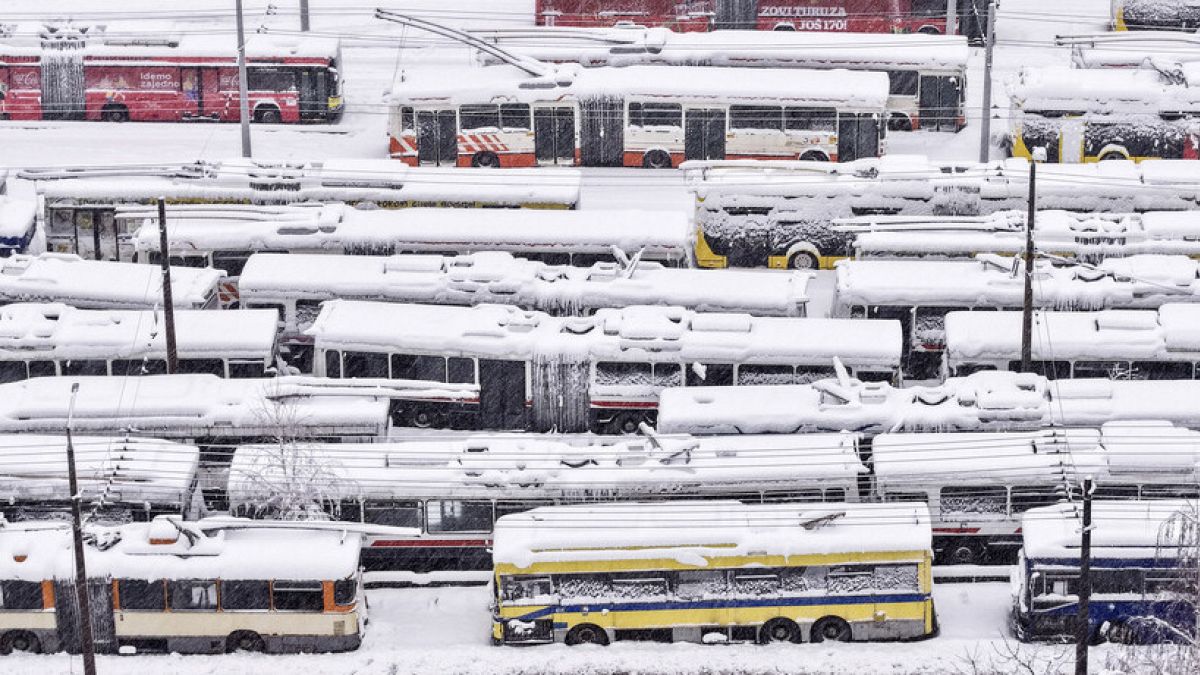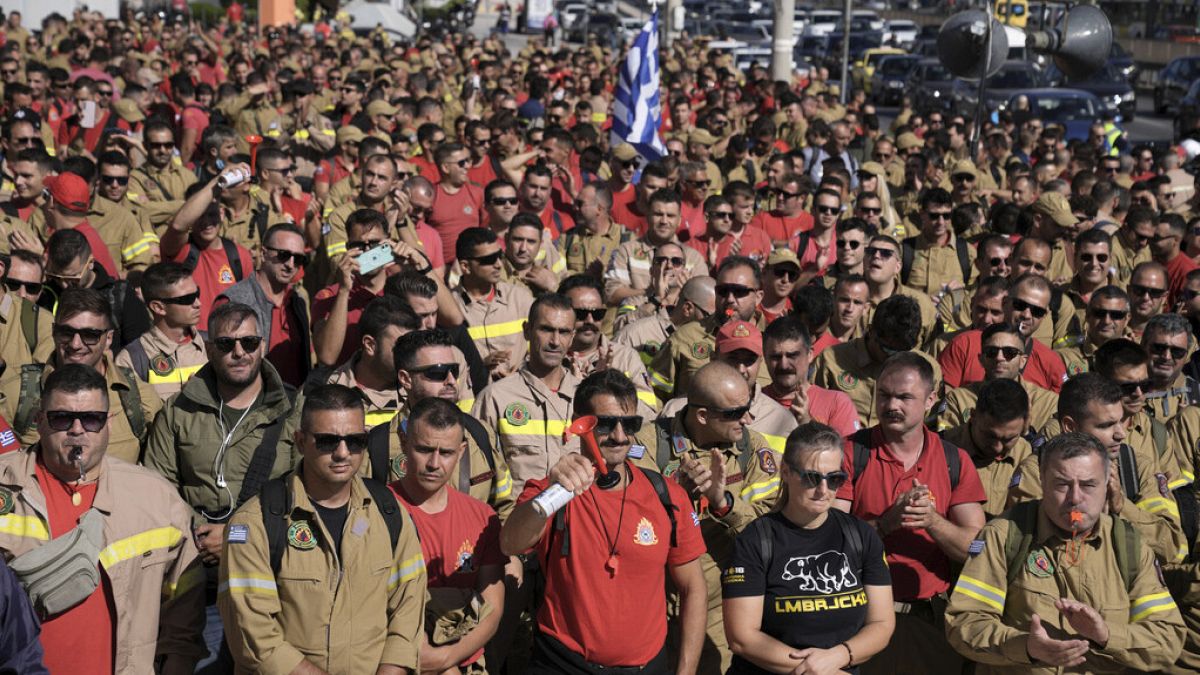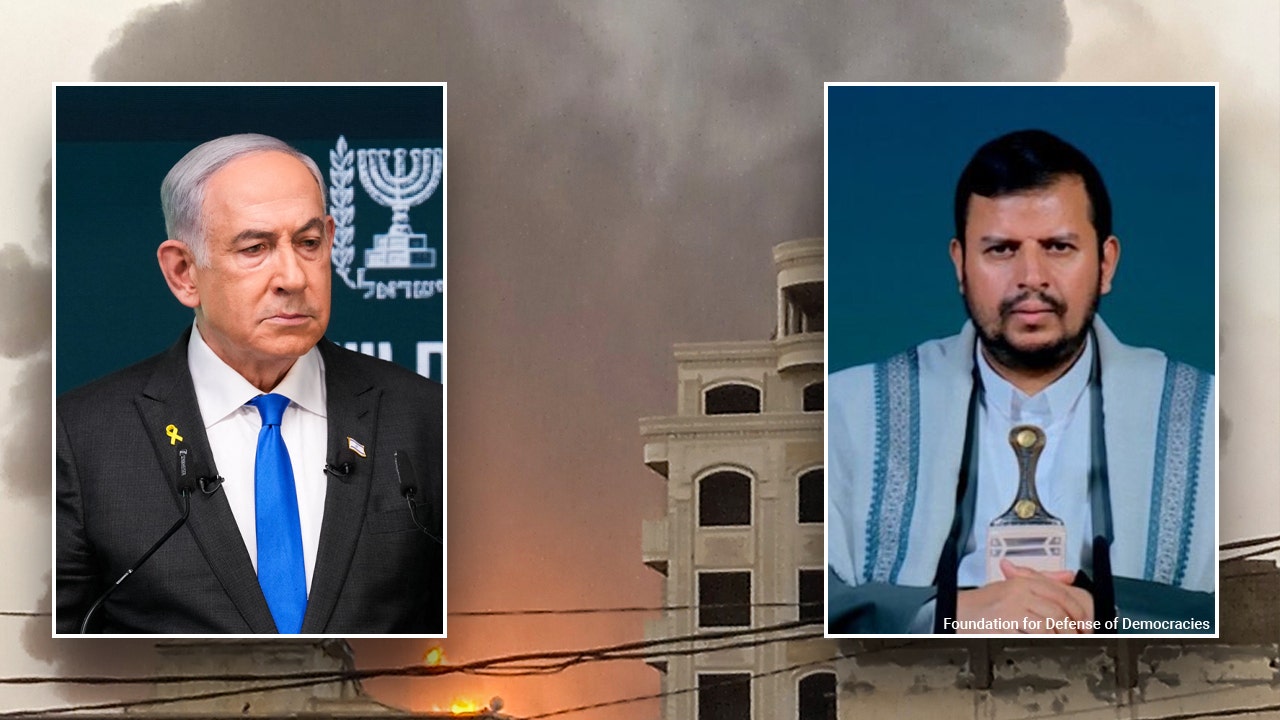Greece and several other countries in Europe are struggling to deal with worsening wildfires that are exacerbated by climate change.
Hundreds of seasonal firefighters in Greece protested on Thursday to demand permanent positions as their contracts expired following a brutal wildfire season.
The protesters, who gathered outside the civil protection ministry in Athens, represent about 2,500 firefighters whose short-term contracts ended Thursday, leaving them unemployed until the next wildfire season begins in May.
Union representatives say that climate change means the risk of wildfires in Greece has extended beyond the May-October period, requiring a year-round firefighting capability.
While wildfires are common in Greece in the traditional summer months, this year the season started much earlier than usual, in April, and extended well into autumn. Over the past few months, the fire service has had to cope with more than 4,500 wildfires.
The 2023 fire season saw an estimated 1,747 sq kilometers burned across Greece — more than four times the annual average of the past decade, according to the EU’s wildfire monitoring service. The damage this year to-date is estimated at 410 sq kilometers and includes a major fire in August that reached the outskirts of Athens.
Evangelos Tsoukalas, head of the Seasonal Firefighters’ Association of Greece, said that many members with six or more years of experience had been barred from applying for positions in new special firefighting units because there was an age limit of 35.
“And now our contracts are up, so we are being thrown out as seasonal firefighters,” Tsoukalas said.
The Greek government did not immediately respond to the firefighters’ demand for year-round employment.
Worsening wildfires
Greece is striving to improve its firefighting capabilities to deal with longer and hotter fire seasons.
June and July this year were the hottest on record in Greece, according to preliminary data from the weather service of the National Observatory of Athens.
New legislation has been introduced this year to curb the impact of wildfires. This includes enforcing the removal of biomass from within or near forest areas.
Experts are also considering a range of technical solutions to tackle wildfires — from drones to temperature sensors.
Many countries across Europe, including Portugal, Italy and Croatia, are struggling to cope with wildfires as global warming makes them more frequent and fast-spreading.
The 2023 wildfire season in Europe was among the worst this century, found a European Commission report published in April. About 504,000 hectares — an area twice the size of Luxembourg — was scorched by wildfires last year, the research said.
Read the full article here

















